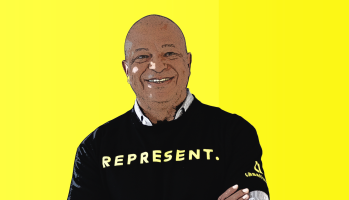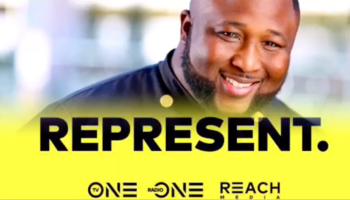
Source: Martin Dimitrov / Getty
Watching a friend go through a rough time is tough. We tend to react by rushing in to help or back away because we are afraid to say the wrong thing. When we think the situation would best be solved by therapy, we sometimes want to jump in with a list of numbers and addresses. Sometimes it is met with a thanks, but when the suggestion is met with rejection, we worry and I often get asked, “How can I make my friend/family member go to therapy.” I reply by saying, “ask that same question and replace therapy with gym and see if it still seems like the best approach”. Sometime we want people to behave a certain way and when they don’t we get nervous.
Before you approach someone about your concerns ask yourself, “Is this my anxiety generating a problem or am I truly concerned by the behavior I’m witnessing?” Imposing therapy on someone is an extremely difficult task; even court ordered treatment doesn’t always solve the problem. What you can do is create the space needed to continue the conversation with the goal of building insight and awareness and coming to a solution in partnership with the person.
Here are 5 ways to assist a friend or family member suffering from depression, get the help they need and deserve.
MAKE SURE YOU ARE THE RIGHT PERSON TO HAVE THE CONVERSATION.
This is tough because we all want to be the one to help the people we love. However, some things are just more effective coming from the right person. Does the person you are concerned about have a really open relationship with their family? Is there a mutual friend that just has a really great way of communicating tough topics? Chances are if you are concerned about someone, so are other people so if you have access to members of their family or close friend circles and it feels appropriate, reach out decide who should introduce the topic and the rest of the team can be a support.
LISTEN.
Family, I have to tell you something. We are terrible listeners and we need rethink how we do it. We listen, sure. However, are you being a GOOD listener. Listening is much more than just hearing. It is hearing without judgement, an agenda, or selectively hearing the things you want. Good listening is hearing the person from their perspective and not interpreting through your own experience ready to fire off advice. Good listening is being reflective back to the person to make sure you understood them properly. Good listening involves a slow, thoughtful conversation. This can open up opportunities to discuss solutions together because the person feels like you really heard them.
ASK.
Sometimes the best way to have a tough conversation is to show you are not afraid to talk about it. While some are very open about their personal struggles, others are concerned that they will be putting their problems on others. You can open by asking permission saying, “Hey, seems like there has been a lot going on lately, anything you want to talk about?” If they say no, drop it. You can follow up with, “Well, I am here if you do decide you want to,” and then talk about something else.
If people aren’t ready to talk, forcing them isn’t going to help. If they do welcome the invitation, listen, be fully present and ask before you give advice or start sharing your own experience; this moment is about them, not you. You can also ask questions about what they have already done to help solve their problem or what their previous experience with getting help was like. Sometime we have to reflect on where we have been in order to make the best plan for where we are going.
SHARE YOUR EXPERIENCE.
Some spaces are designed for listening, others are meant for sharing. Sharing can help people feel comfort that they are not alone in what they are experiencing and hearing about your experience in therapy may be just the push in the right direction they need. A shared story can provide encouragement to push past feelings of shame or embarrassed and know they are not alone.
LET PEOPLE FEEL.
Let people cry, let people be angry, let people have a moment in their emotions so they can really feel what they are feeling. Our emotions can teach us a lot if we really listen and don’t try and push them away. Most times it is our own discomfort with emotions that make us respond with “don’t cry” or “just focus on the positive”. We tend to applaud those who warrior through tough times, but it takes a different type of strength and courage to really feel your emotions that deserves applause too.
Beauties, do you have an experience helping a friend or family member receive therapy? Share in the comment section.
Stacey Younge, LSCW is a Licensed Clinical Social Worker and owner of Sixth Street Wellness. Her private practice focuses on utilizing both traditional therapy and tele-behaviorial health specializing in depression, anxiety and trauma. She is also the Senior Youth Clinician at a community mental health center in Harlem, New York specializing in adolescents and justice involved youth. Stacey is a California native, runner and mental health advocate who is here to help you.
DON’T MISS:
Therapist Stacey Younge Gets Real With Black Women About The Feeling Of Loneliness
7 Signs That It May Be Time For You To Find A Therapist
5 Ways To Assist A Friend Or Family Member Suffering With Depression Get The Help They Need was originally published on hellobeautiful.com















